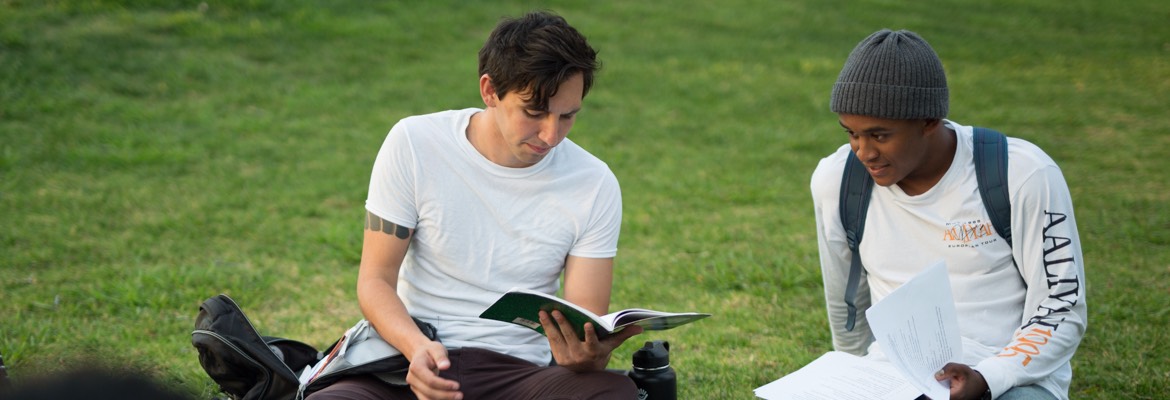Minor in Philosophy
School of Humanities and Social Sciences

Overview
Biola's philosophy minor will challenge you to think deeply about humanity's most enduring questions: What is real? What can we know? How should we treat on another? In the process, you will gain practical skills that prepare you for a broad range of career and graduate programs.
Courses
Below are the course requirements for this academic program. In addition to these program-specific requirements, all majors include Biola's traditional undergraduate core curriculum. For more program details, including a sample course sequence, visit Biola's academic catalog.
Mission
The mission of the Philosophy minor is to foster a community of Christian scholars apprenticed to Jesus in the pursuit of theoretical and practical wisdom.
Curriculum Requirements
| Code | Title | Credits |
|---|---|---|
| Program Courses | ||
| Select 18 credits of PHIL courses, 15 of which must be upper-division elective courses. | 18 | |
| Total Credits | 18 | |
18
Total Program Credits
Every program at Biola University features rigorous academics, biblically integrated curriculum and vocational preparation.
WSCUC
Accreditation
Biola University is accredited by the WASC Senior College and University Commission. Additional accreditations may apply to specific programs.
You may also be interested in
B.A. in English
School of Humanities and Social Sciences
B.A. in History
School of Humanities and Social Sciences
B.A. in Philosophy
School of Humanities and Social Sciences
Minor in Art
School of Fine Arts and Communication
Minor in Biblical and Theological Studies
Talbot School of Theology
Minor in English
School of Humanities and Social Sciences
Minor in History
School of Humanities and Social Sciences
Minor in Pre-Law
School of Humanities and Social Sciences
Minor in Public Administration
School of Humanities and Social Sciences